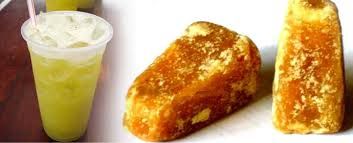From Sugarcane Product to Alternative Fuels: The Multiple Uses of Sugarcane
From Sugarcane Product to Alternative Fuels: The Multiple Uses of Sugarcane
Blog Article
Checking Out Sugarcane Products: Versatile Benefits and uses
The expedition of sugarcane items exposes a remarkable range of applications that expand well beyond the acquainted realm of sweeteners. As we take a look at the diverse contributions of sugarcane, one may question just how these diverse uses can reshape sectors and way of lives in a swiftly progressing world.
Review of Sugarcane
Although sugarcane is often linked largely with sugar manufacturing, it is a versatile crop with a rich background and various applications. Cultivated in tropical and subtropical areas, sugarcane prospers in cozy environments and well-drained soils, contributing considerably to lots of economic climates worldwide. This perennial turf, coming from the category Saccharum, can grow to elevations of up to 4 meters, showcasing its robust nature.
Past its primary function in sugar removal, sugarcane functions as a vital source for various spin-offs. The fibrous residue, referred to as bagasse, is utilized for creating bioenergy and as a basic material for making paper and biodegradable products. In addition, molasses, a by-product of sugar refining, is rich in nutrients and frequently used in pet feed and fermentation procedures.
Sugarcane additionally plays a considerable role in traditional medicines and social methods in several areas, showing its relevance past commercial usage (sugarcane product). With the raising focus on sustainable agricultural practices, sugarcane is being explored for its capacity in biofuels and carbon capture, placing it as an essential gamer in the transition in the direction of eco-friendly power resources. Hence, the versatility of sugarcane extends much beyond the confines of sugar manufacturing
Sugarcane in Food Products


Beyond sugar, sugarcane is the source of energy-rich items such as jaggery and panela, which are traditional unrefined sugars made use of in numerous cultures. These products not only sweeten foods yet additionally impart distinct tastes and nutritional advantages.
Sugarcane juice, a rejuvenating drink enjoyed in several exotic regions, showcases the plant's convenience. It is typically taken in fresh or fermented right into alcoholic drinks like rum.
Additionally, sugarcane fibers, referred to as bagasse, are sometimes made use of to develop food packaging products, stressing the environmental benefits of sugarcane processing. Overall, sugarcane's payment to food products is diverse, boosting tastes, offering nutritional value, and playing a substantial function in cooking customs around the globe.
Industrial Applications of Sugarcane
In different industries, the adaptability of sugarcane expands far past its cooking applications. Sugarcane works as an important basic material in the production of biofuels, specifically ethanol, which is increasingly made use of as a renewable resource resource. This biofuel is obtained with fermentation and purification processes, providing a lasting option to fossil gas and adding to a decrease in greenhouse gas emissions.

In addition, the sugarcane market has found applications in drugs, where its elements are used in the formulation of numerous medicinal items. The all-natural compounds extracted from sugarcane exhibit antimicrobial and antioxidant buildings, boosting the efficiency of specific medicines.
Lastly, sugarcane is integral to the manufacturing of a variety of chemicals, including glycerol and natural acids, which are crucial for various industrial processes. These applications highlight sugarcane's considerable function in promoting industrial sustainability and innovation.
Environmental Advantages of Sugarcane
The complex applications of sugarcane not only enhance commercial procedures however additionally add substantially to environmental sustainability. As a renewable energy, sugarcane cultivation plays a crucial function in carbon sequestration, taking in considerable amounts of co2 from the environment. This process aids alleviate environment modification by lowering greenhouse gas concentrations.
Furthermore, sugarcane by-products, her latest blog such as bagasse and molasses, use green choices to traditional materials. Bagasse, the coarse deposit after juice removal, can be made use of as a biomass gas, reducing dependence on nonrenewable fuel sources and advertising cleaner energy resources. Additionally, molasses can be changed into bioethanol, further supporting sustainable energy campaigns.
Sugarcane farming additionally advertises biodiversity and soil health. Sustainable agricultural methods, such as intercropping and crop rotation, improve dirt fertility and reduce disintegration. Additionally, the crop's deep root system aids in water retention, thus supporting local ecological communities and enhancing durability against dry spell.
Wellness Advantages of Sugarcane
Rich in crucial nutrients and natural sugars, sugarcane offers many wellness advantages that make it a beneficial enhancement to a balanced diet plan. Its high fiber material help in digestion, promoting gut health and stopping irregularity. Furthermore, sugarcane gives anti-oxidants, which combat oxidative anxiety and might reduce the danger of persistent diseases.
Additionally, sugarcane juice is known for its hydrating buildings, making it an outstanding drink choice, especially in hot climates. The all-natural sugars present in sugarcane provide a fast power increase, useful for professional athletes and those participated in exercises. It additionally includes important about his minerals and vitamins, such as vitamin C, magnesium, potassium, and calcium, which add to total wellness.
Researches suggest that sugarcane may help manage blood sugar levels, making it a more suitable sugar for people with diabetes when eaten in moderation. Additionally, its anti-inflammatory buildings can sustain liver health and aid in detoxing.
Conclusion
In final thought, sugarcane arises as a very functional crop with substantial contributions to numerous markets. The byproducts of sugarcane, such as bagasse and molasses, assist in eco-friendly techniques, while its health Homepage benefits improve overall well-being.
Although sugarcane is typically associated mainly with sugar manufacturing, it is a functional crop with a rich background and many applications.Past its key function in sugar extraction, sugarcane offers as an essential source for various by-products. Largely known for generating sugar, sugarcane is transformed right into granulated sugar, brownish sugar, and molasses, each serving distinctive culinary objectives.Rich in natural sugars and important nutrients, sugarcane offers numerous health and wellness benefits that make it a useful enhancement to a balanced diet regimen. The all-natural sugars present in sugarcane supply a quick power increase, advantageous for professional athletes and those involved in physical activities.
Report this page